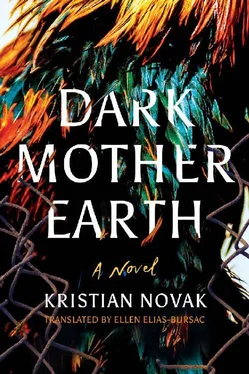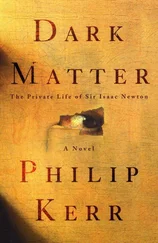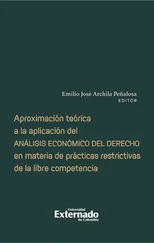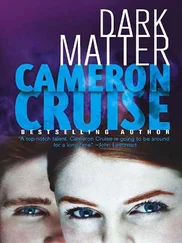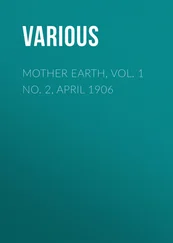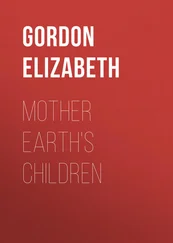Mom came into the room and asked why I was being so quiet and if I had done my homework. I said I had and quickly shut my notebook. She told me that if I had, I could go over to Zvonko “Democracy” Horvat’s house. I didn’t want to because he was always asking me things I didn’t know how to respond to. She explained that he was lonely and maybe very sick, and he wanted to have company close by. Again she told me he’d buy me a tracksuit if I helped him out a little with his attic.
Democracy had made a bundle working in the mines. His wife, a little younger, had stayed in Germany, and he didn’t often speak of her. There were rumors that he’d never gone out or spent anything while living there. Rumor had it that he left a huge amount of money in a German bank because he thought somebody would take it from him in Yugoslavia, but he was happier living in the village where he was born—alongside all the other poor people—than he would have been living in Germany as a wealthy man. Once he retired, he devoted himself to spending time with people, going to soccer games, and following a daily routine. Every morning he went to the store for fresh bread and a newspaper, and on the way back he’d stop and chat with whoever he ran into near the road; he’d lean on a gate, leaf through the newspaper, and make his observations, with special attention to reports about how somebody was oppressing somebody else.
“My oh my, will you look at that now, this Joža fella… poor people…”
And my mom was a receptive audience. She had a soft heart for the old man, a sort of tacit loyalty to all those who’d gone abroad to work. But in one respect, they were very different: Mom felt she’d made her peace with the way things were in Croatia, but Zvonko had not. Maybe he should have, because word got around the village that he had cancer. And it did look as if his complexion was a little sallow and he was hunched over.
Every house has its own particular odor, a mixture of the metabolisms of everything living inside it. At Zvonko’s I smelled freshly mown grass, baked beans and smoked meat, the overheated TV, and a host of colder smells, which were, I think, from his memories. Like the sad smell of your favorite dish the next day in the fridge. He greeted me with a smile and invited me in. Something about it, like many of the homes of people who worked abroad, evoked a Bavarian mountain chalet. The carved wooden table and benches with red, white, and gold hues, the reproductions of landscapes framed as if they were originals. Needlepoints of little bunnies drinking water, and a metal plaque bearing the name of a minor German city. We sat on the sofa in the huge half-empty living room. There were Tops cookies, pretzel sticks, and Tok Cola on the table, and Zvonko poured me a soda. I felt a sudden sadness at the thought that this was the closest to a child’s birthday party I’d been to since the night I tried to throw Dejan into the river. A Western film about two friends was playing on the vast TV screen.
“Those are Winnetou and Old Shatterhand. I always watched those movies when I was in Germany. They’re blood brothers. They cut their hands with a knife, pressed them together, and mixed their blood. You and your friends probably play cowboys all the time.”
“Actually, nope.”
For a while we watched the movie. I could hear his breathing, labored, jagged. The Native Americans tied a man to a tree and left him to be eaten by ants. I understood this was interesting for Zvonko the way ninjas were for me, but ninjas were agile and stealthy and threw shurikens, while the cowboys were boring. Some of the Native Americans wore feathers and were bare to the waist, and the cowboys didn’t have a single automatic weapon. I told Zvonko I’d like to see the attic. His blank look confirmed that the idea of cleaning the attic was just an excuse to get me there.
“Sure, let’s go,” he finally chirped.
The attic was tidy and clean. I spotted skis and goggles, a hockey stick, a miner’s helmet, plastic chairs, a Ping-Pong table, paintbrushes so hard they could have doubled as weapons. A few piles of magazines about cars. He showed me his collection of beer cans, which he stored in a huge trunk. He told me he had over seventy different cans, not just from Germany but from the Netherlands and Switzerland, too. I asked why he collected them, but all he said was that he’d give them to me if I wanted them. I picked one up and peered in through the hole. The attic was dark, but within it there were these seventy even darker nooks. And inside each one of them, it seemed to me, was a person who’d betrayed Zvonko “Democracy” Horvat. He’d found the perfect receptacle in the beer cans, which contained the musty odor of when somebody disappoints you. These cans were his anger boxes. I shivered, told him I didn’t want them, and lied that I had to go home. He said the pretzel sticks and cookies would be waiting for me, and he thought he had Haribo gummy bears somewhere. I wasn’t sure I wanted them.
“Okay, see you soon, Uncle Zvonko.”
“Listen, hang on. I could adjust my antenna. You’d have cartoons all day long. Should I adjust it? The satelitempfänger ?”
I told him sure, and hurried off. It was still daylight, and I wasn’t in the mood to go home, so was excited when I saw Franz on the road. When he saw me, he went off without a word to get our tattered soccer ball. We kicked it back and forth, and Franz gestured it was easier to swallow now, but still had to spit pink phlegm out every few minutes. I told him about the men from the movie who were blood brothers. Franz couldn’t stop giggling, and pantomimed he must have at least ten thousand brothers among the mosquitos and horseflies.
Mladen Horvat drove by, stopped his red Yugo, and rolled down the window.
“What’s up, boys?”
“Just kicking the ball around,” I said, and stuttering Franz didn’t want to hide that we’d been waiting for Mladen to start training us, so he leaned right up against the car door, tense as a slingshot.
“Nice, nice, any day now you’ll be stars. How’s the tongue, Franz? Can you talk yet?” asked Mladen, and Franz shook his head sadly.
“Don’t you worry now, it’ll come with time. I’m on my way home from work, and was thinking of kicking a ball around a little myself. You like to join me?” asked Mladen, brightly. Then he added, “But maybe your folks wouldn’t like it. Matija, does your mother know where you are?”
“Don’t worry, she thinks I’m at Democracy’s place and expects me home in two hours or so.”
“All right, then off we go. And we’ll say you stopped by and we had wafer cookies and a little orange soda. If’n they ask. And if they don’t, nobody’s the wiser.”
He told us he had to go to the store and that we should wait for him at the bend in the road on the way out of town. He had us ride in the trunk of the car because he said it would be fun, and he’d always wanted to ride in the trunk when he was a kid. The house where Mladen and Milica lived was a five-minute drive toward the vineyards, on the village outskirts.
It was fun riding in the trunk, but by the end I was feeling queasy. Franz’s mouth smelled bad, and I couldn’t stop thinking about his half-dead tongue.
Milica was sitting on the terrace, smoking a cigarette. She was a gaunt woman with hollow cheeks. She barely greeted us. Mladen sent us to the garage to fetch a ball, and we could hear Milica asking him why he’d brought us. There was something angry and desperate in her voice. I thought Mladen was nice to agree to live with her, when she was so gangly and grumpy. When we came back from the garage, Mladen tossed Franz a pair of brand-new black-and-red goalie gloves, still in their package! Franz was nearly in tears, he was so happy, and didn’t dare try them on until Mladen put them on his hands for him. We kicked the ball back and forth, and then Mladen put Franz through a few stretching exercises, and he told me to run around a nearby stand of trees to get myself into shape. I sprinted like crazy and reckoned he’d be pleased with how fast I’d been, but while still stretching Franz’s legs, he said I ought to have gone slower, because now I was all tuckered out.
Читать дальше
